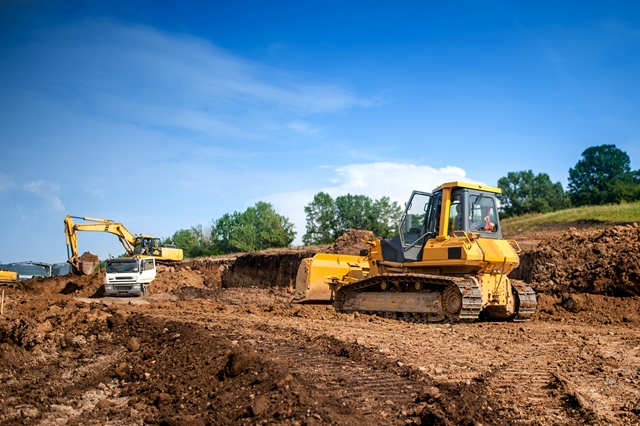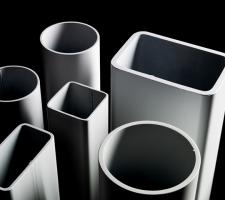
Steel manufacturers are finding new ways to lighten the weight of off-highway equipment, helping budget-conscious quarry operators reduce their fleet running costs. Guy Woodford reports.
Celsius 420 was developed for applications where structural performance at a reduced weight is required and represents innovative advances in steel manufacturing. Offering a high yield strength of 420 megapascals (MPa) and claimed weight savings of up to 17% compared with Tata Steel’s Celsius 355 products, Celsius 420 is designed for use in construction and quarrying equipment such as articulated dump trucks, loaders, and mobile crushers and screens, including in structural components, vehicle axles and cab systems.
Tata Steel works with some of the world’s largest original equipment manufacturers in the demanding earthmoving, mining, crane, material handling and agricultural sectors. Reducing the weight of the vehicles used is a constant focus for original equipment manufacturers, who are under pressure to meet strict emissions and fuel consumption targets. The use of Celsius 420 hollow sections helps them meet these aims, due to the fact it can be used as a thinner section, with a higher yield strength.
Celsius 420’s manufacturing process ensures that the product has no weaknesses around its whole perimeter and weld line. This enables the product to be used in more demanding applications. Combined with the steel’s lower Carbon Equivalent Value (CEV) of 0.45, compared to the 0.5 product standard of EN 10210, this product is also easier to weld and fabricate. Not only is steel with a lower CEV better for welding, but it requires no additional heat treatment, making the steel more cost-effective to process. The steel’s strong weldability – said to be unique in high-strength tube products – means high-strength components can be produced without changing standard weld procedures.
Furthermore, tighter radii can be maintained on the corner profiles of square and rectangular sections to ensure a smaller surface area, reducing weight and risk of fracture, as well as providing a pleasing and consistent aesthetic.
Kevin Edgar, head of marketing, engineering sectors for Tata Steel’s European operations, added: “Being a hot-finished structural hollow section product with added strength, Celsius 420 offers equipment makers big advantages through lower material costs, good weldability and improved performance thanks to the high degree of uniformity in wall thickness. Customers can reduce the weight of the material they use for equivalent performance, which gives further benefits in terms of weight savings.”
The Celsius 420 range of circular, rectangular, square and elliptical hollow sections is now in production and available to the market. The sections are made from strip produced at Tata Steel’s plants in south Wales, which is formed into hot-finished tubes at the company’s Hartlepool and Corby mills in England.
Belgian steel producer NLMK Clabecq is expanding its range of high quality engineering steels. Both the Quard and Quend steel products are being offered in a wider range of thicknesses than previously. A spokesperson for the firm said, “We are expanding the size range and thickness range.”
The firm’s Quard product offers abrasion resistance and suits duties in areas that suffer high wear rates, such as for dump truck bodies. Meanwhile the Quend product is a high yield strength steel that is aimed at structural applications, such as for use in crane or concrete pump booms. The new thicknesses and widths being made available depend upon the grade of the steel however. Several major manufacturers now use NLMK as a preferred supplier due to the high quality of the steel, both for structural and wear protection applications. The quality of the firm’s steel products is said to be very high according to the company and the spokesperson added, “Our steel is easier to bend and cut so customers don’t waste so much time in preparation for fabrication.”
The new 3.2mm thickness Quard product is now in production at the firm’s Belgian rolling plant and will open up the range of applications available to this product. Suiting duties in wear protection, the 3.2mm thickness product will allow manufacturers to build long-lasting, durable fabrications for a wider array of equipment and applications than was previously available.
Nordic steel specialist
The range of thicknesses makes the steel suitable for applications from refrigerators to dump trucks. The steel’s specifications are fully guaranteed.
SSAB is offering a customer service programme called My Inner Strenx in which it will provide priority technical support and increased marketing support. A global leader in high strength steels with over 17,000 employees in 50 countries and global sales of €6.45 billion (SEK 60 billion), SSAB runs an extensive educational programme in the use of high strength steels. It also operates some of the most CO2 efficient steel production facilities in the world, claims chief executive officer Martin Lindqvist.














